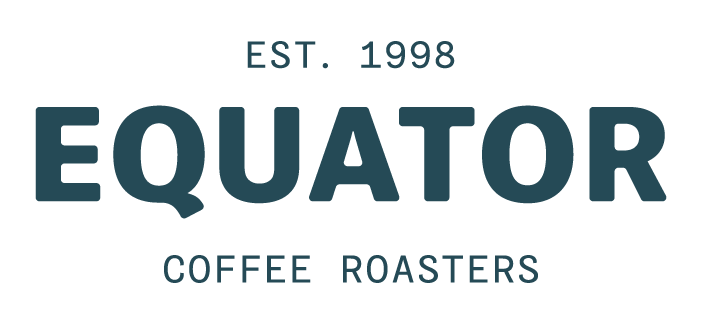Regulation 191/11: Integrated Accessibility Standards under the Accessibility for Ontarians with Disabilities Act, 2005 requires organizations to create written accessibility policies and make them publicly available. Accessibility policies are the formal rules an organization puts in place to achieve its accessibility goals.
The law is flexible, so you can develop your accessibility policies in a way that works best for your organization. There is no right or wrong way. This form provides sample information to help you comply with section 3 of the Regulation.
This section applies to the Government of Ontario, Legislative Assembly of Ontario, Designated Public Sector organizations as well as business/non-profit organizations with 50 or more employees.
This document is provided for general information only as a sample reference to assist organizations in meeting their obligations under the Accessibility for Ontarians with Disabilities Act, 2005. Each organization is responsible for understanding and complying with its legal obligations and developing its own policies, procedures and material based on its particular situation.
Users are encouraged to seek independent advice and the Government of Ontario, in providing public information on accessibility is not responsible for its usage.
1. Statement of Organizational Commitment
Equator Coffee Roasters is committed to ensuring equal access and participation for people with disabilities. We are committed to treating people with disabilities in a way that allows them to maintain their dignity and independence. We believe in integration and we are committed to meeting the needs of people with disabilities in a timely manner. We will do so by removing and preventing barriers to accessibility and meeting our accessibility requirements under the Accessibility for Ontarians with Disabilities Act and Ontario’s accessibility laws.
Equator Coffee Roasters is committed to meeting its current and ongoing obligations under the Ontario Human Rights Code respecting non-discrimination.
Equator Coffee Roasters understands that obligations under the Accessibility for Ontarians with Disabilities Act, 2005 (AODA) and its accessibility standards do not substitute or limit its obligations under the Ontario Human Rights Code or obligations to people with disabilities under any other law.
Equator Coffee Roasters is committed to excellence in serving and providing goods, services or facilities to all customers including people with disabilities.
Our accessible customer service policies are consistent with the principles of independence, dignity, integration and equality of opportunity for people with disabilities.
2. Training
We are committed to training all staff and volunteers in accessible customer service, other Ontario’s accessibility standards and aspects of the Ontario Human Rights Code that relate to persons with disabilities.
In addition, we will train:
- all persons who participate in developing the organization’s policies; and
- all other persons who provide goods, services or facilities on behalf of the organization
Training of our employees and volunteers on accessibility relates to their specific roles. Training includes:
- purpose of the Accessibility for Ontarians with Disabilities Act, 2005 and the requirements of the Customer Service Standards
- our policies related to the Customer Service Standards
- how to interact and communicate with people with various types of disabilities
- how to interact with people with disabilities who use an assistive device or require the assistance of a service animal or a support person
- how to use the equipment or devices available on-site or otherwise that may help with providing goods, services or facilities to people with disabilities.
- what to do if a person with a disability is having difficulty in accessing our organization’s goods, services or
We train every person as soon as practicable after being hired and provide training in respect of any changes to the policies.
We maintain records of the training provided including the dates on which the training was provided and the number of individuals to whom it was provided.
3. Assistive Devices
People with disabilities may use their personal assistive devices when accessing our goods, services or facilities.
In cases where the assistive device presents a significant and unavoidable health or safety concern or may not be permitted for other reasons, other measures will be used to ensure the person with a disability can access our goods, services or facilities.
We ensure that our staff are trained and familiar with various assistive devices we have on site or that we provide that may be used by customers with disabilities while accessing our goods, services or facilities.
If applicable, identify how your organization will train staff on the use of assistive devices
4. Communication
We communicate with people with disabilities in ways that take into account their disability. This may include the following:
- We ensure our team will speak with respect and with equality.
- Paying attention to signals that are non-verbal and verbal.
- Pay attention to non-verbal signals. ...
- By speaking directly to them.
- Focusing on tone, and clarity of communication.
- By providing space and letting them inform us of their needs.
- To not assume they need assistance unless requested.
We will work with the person with disabilities to determine what method of communication works for them.
5. Service Animals
We welocme people with disabilities and their service animals. Service animals are allowed on the parts of our premises that are open to the public and third parties.
When we cannot easily identify that an animal is a service animal, our staff may ask for documentation (template, letter or form) from a regulated health professional that confirms the person needs the service animal for reasons relating to their disability.
A service animal can be easily identified through visual indicators, such as when it wears a harness or a vest, or when it helps the person perform certain tasks.
A regulated health professional is defined as a member of one of the following colleges:
- College of Audiologists and Speech-Language Pathologists of Ontario
- College of Chiropractors of Ontario
- College of Nurses of Ontario
- College of Occupational Therapists of Ontario
- College of Optometrists of Ontario
- College of Physicians and Surgeons of Ontario
- College of Physiotherapists of Ontario
- College of Psychologists of Ontario
- College of Registered Psychotherapists and Registered Mental Health Therapists of Ontario
Service animals are prohibited from the following areas:
- The roastery manufacturing production area, where food items (coffee only) are produced and may be open.
6. Support Persons
A person with a disability who is accompanied by a support person will be allowed to have that person accompany them on our premises.
In certain cases, this organization might require a person with a disability to be accompanied by a support person for the health or safety reasons of:
- the person with a disability
- others on the premises
Before making a decision, this organization name will:
- consult with the person with a disability to understand their needs
- consider health or safety reasons based on available evidence
- determine if there is no other reasonable way to protect the health or safety of the person or others on the premises
If this organization determines that a support person is required, we will waive the admission fee or fare (if applicable) for the support person.
7. Notice of Temporary Disruption
In the event of a planned or unexpected disruption to services or facilities for customers with disabilities, this organization will notify customers promptly. This clearly posted notice will include information about the reason for the disruption, its anticipated length of time, and a description of alternative facilities or services, if available.
The notice will be made publicly available in the following ways:
- Homebase
- Official printed letter provided by the company to each employee affected.
- In-person conversation or group meeting.
8. Feedback Process
Equator Coffee Roasters welcomes feedback on how we provide accessible customer service. Customer feedback will help us identify barriers and respond to concerns.
Feedback may be provided in the following ways:
- In-person conversation with a manager
- Emailing the owners at info@equator.ca
All feedback, including complaints, will be handled in the following manner:
- Filed into the feedback complaint log.
- A meeting will be scheduled with management to discuss feedback and an action plan to the General Manager.
- Resolution will be informed and logged by management.
- Customers can expect to hear back in 2 working days.
Equator Coffee Roasters ensures our feedback process is accessible to people with disabilities by providing or arranging for accessible formats and communication supports, on request.
9. Notice of Availability of Documents
Equator Coffee Roasters notifies the public that documents related to accessible customer service, are available upon request by posting a notice in the following location(s)/way(s):
- On the website
- In Homebase
- In cafés in a filed binder.
Equator Coffee Roasters will provide these documents in an accessible format or with communication support, on request. We will consult with the person making the request to determine the suitability of the format or communication support. We will provide the accessible format in a timely manner and, at no additional cost.
10. Procurement
Note: Under the AODA, only designated public sector organizations, Government of Ontario and Legislative Assembly have this requirement.
We incorporate accessibility criteria and features when procuring or acquiring goods, services or facilities, including self-service kiosks. If it is not possible and practical to do so, we will provide an explanation upon request.
11. Information and Communications
We have a process for receiving and responding to feedback and the process is accessible to persons with disabilities upon request.
We communicate with people with disabilities in ways that take into account their disability. When asked, we will provide information about our organization and its services, including public safety information, in accessible formats or with communication supports:
- in a timely manner, taking into account the person’s accessibility needs due to disability; and
- at a cost that is no more than the regular cost charged to other
We will consult with the person making the request in determining the suitability of an accessible format or communication support. If the organization determines that information or communications are unconvertible, the organization shall provide the requestor with:
- an explanation as to why the information or communications are unconvertible; and
- a summary of the unconvertible information or
We notify the public about the availability of accessible formats and communication supports by:
- creating news updates on our website
- Posting on social media
- Informing staff through homebase and in person.
We will also meet internationally-recognized Web Content Accessibility Guidelines (WCAG) 2.0 Level AA website requirements in accordance with Ontario’s accessibility laws.
12. Employment
We notify employees, job applicants and the public that accommodations can be made during recruitment and hiring. We notify job applicants when they are individually selected to participate in an assessment or selection process that accommodations are available upon request. We consult with the applicants and provide or arrange for suitable accommodation.
We notify successful applicants of policies for accommodating employees with disabilities when making offers of employment.
We notify staff that supports are available for those with disabilities as soon as practicable after they begin their employment. We provide updated information to employees whenever there is a change to existing policies on the provision of job accommodation that take into account an employee’s accessibility needs due to a disability.
We will consult with employees when arranging for the provision of suitable accommodation in a manner that takes into account the accessibility needs due to disability. We will consult with the person making the request in determining the suitability of an accessible format or communication supports specifically for:
- information that is needed in order to perform the employee’s job; and
- information that is generally available to employees in the workplace
Where needed, we will also provide customized emergency information to help an employee with a disability during an emergency. With the employee’s consent, we will provide workplace emergency information to a designated person who is providing assistance to that employee during an emergency.
We will provide the information as soon as practicable after we become aware of the need for accommodation due to the employee’s disability.
We will review the individualized workplace emergency response information:
- when the employee moves to a different location in the organization;
- when the employee’s overall accommodations needs or plans are reviewed; and
- when the employer reviews its general emergency response
We have a written process to develop individual accommodation plans for employees.
We have a written process for employees who have been absent from work due to a disability and require disability-related accommodations in order to return to work.
Our performance management, career development and redeployment processes take into account the accessibility needs of all employees.
Note: This only applies to organizations that already have these processes in place.
13. Design of Public Spaces
Note: This section may not apply to all organizations.
We will meet accessibility laws when building or making major changes to public spaces. Our public spaces include:
Accessible off parking
We put procedures in place to prevent service disruptions to the accessible parts of our public spaces.
14. Transportation
Note: This section only applies to municipalities and municipalities that operate conventional and/or specialized transportation services, district school boards, hospitals, colleges and universities that provide transportation services.
We meet accessibility laws when making our transportation services accessible. Our accessible transportation services include: - List Accessible Services
15. Changes to Existing Policies
Any policies of this organization that do not respect and promote the principles of dignity, independence, integration and equal opportunity for people with disabilities will be modified or removed.
This document is publicly available. Accessible formats are available upon request.


